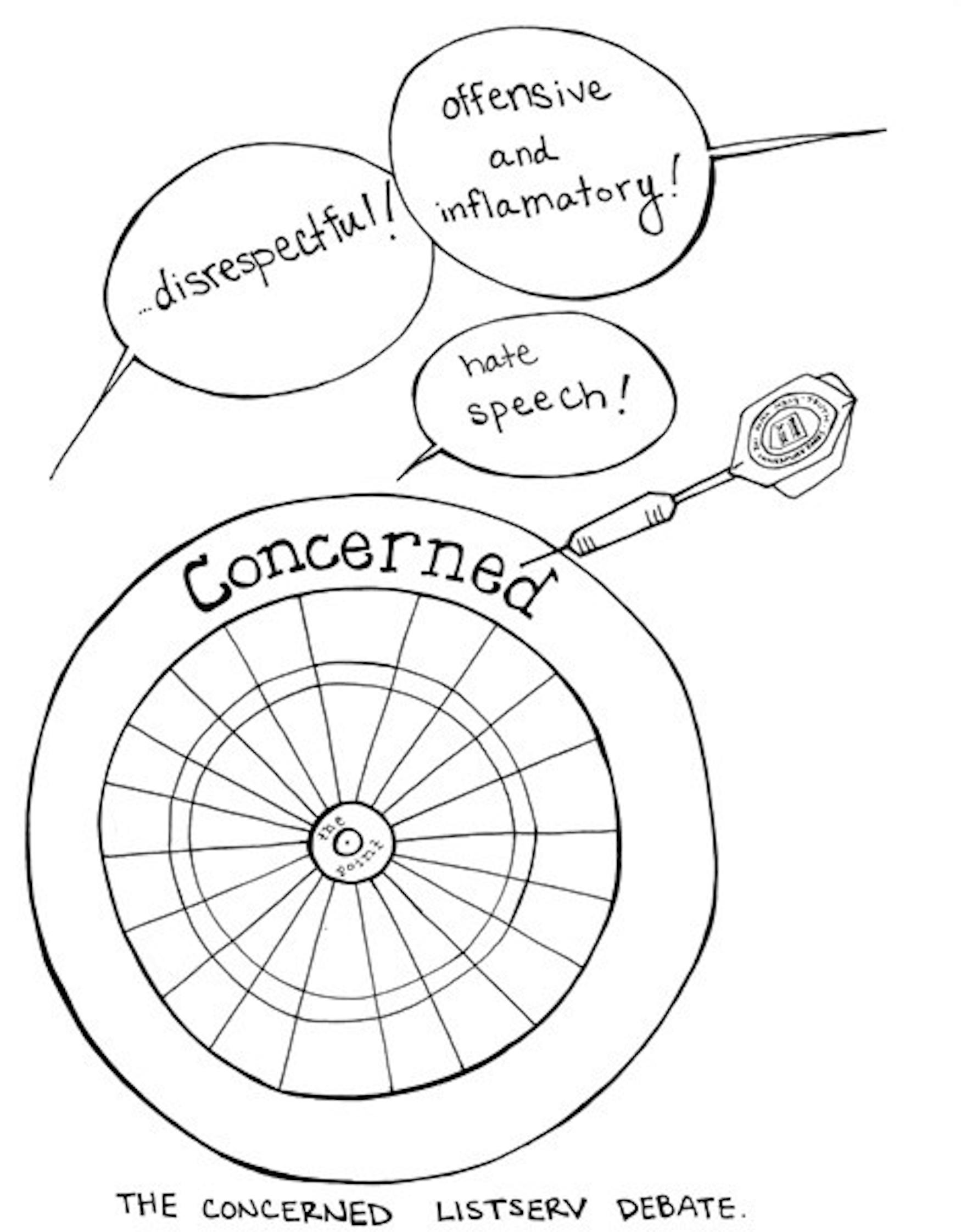A "Jaccuse!" lacking who, what and where
This summer, University President Frederick Lawrence sent a public letter to the faculty which, in the emotive force of its condemnation, evoked Émile Zola’s “J’Accuse…!”, the famous 1898 public letter on the Dreyfus affair. Only Zola was meticulous in writing exactly what he deplored and why.
President Lawrence’s letter was publicly endorsed last week, most unfortunately, by the Justice editorial board. They could not be more wrong.
“Certain statements,” President Lawrence wrote, “were made on a restricted listserv” of the University, and were “reported in the public media.” “I repudiate these statements publicly and I urge you to do the same... Some remarks by an extremely small cohort of Brandeis faculty members are abhorrent … I condemn these statements in no uncertain terms.” The statements were “disrespectful, offensive and inflammatory” and “threaten to mischaracterize our community as a whole.”
Which statements? Which listserv? Which public media? Which faculty? President Lawrence’s letter doesn’t say. This omission bothers me also because I may be one of the accused faculty members.
The Justice went further. It also anonymously accused more than one listserv subscriber of having expressed hate speech.
If you’re going to take serious issue with someone publicly, you have to say precisely who they are, what they said and why you don’t like it. This is an obvious, necessary condition for persuasive writing. That’s what I’m doing here.
The listserv of note is “Concerned,” formed during the second Iraq War in 2003, a discussion group for numerous political issues, with a definite leftward slant. I subscribed for years and wrote many posts. Undergraduates Daniel Mael ’15 and Chloé Valdary, a senior at the University of New Orleans, gained access to the “Concerned” archives this summer and did their best to stir the pot of the rightwing blogosphere (this, the “public media”) with tales of the “secret” (sic!) listserv and its allegedly scurrilous goings-on. In their tell-all, one of my postings was both mangled and lambasted. While their best efforts failed at getting access to the Panthéon (Fox News), they were picked up and rebroadcast locally by Charles Jacobs, founder of the David Project, a Zionist hasbara organization with significant ties to Brandeis.
The “small cohort of Brandeis faculty” whose postings to “Concerned” were publicized in rightwing blogs this summer also includes my colleagues Profs. Mary Baine Campbell (ENG), Gordie Fellman (SOC), Donald Hindley (POL), Robert Lange (PHYS) and Sabine von Mering (GRALL). Two of us are past chairs of the faculty senate. Are these the people who—sometimes years later—are being accused of hate speech? If someone doesn’t like something we said, we deserve engagement on the issues. There’s been none.
It is my colleague Don Hindley who has attracted the most attention. While I certainly wish that he would write with less stridency and bluster with less blister—and many of my colleagues have urged him similarly—he has been spot-on in his criticism: most significantly, of the excessive executive compensation paid to President Emeritus Jehuda Reinharz and of the continuous administrative demonstration of solidarity with Israel, both institutional and academic. Executive compensation remains big news, with the issue of fair wages across the spectrum from university presidents to Sodexo dining workers. And the administration’s Likudnik Zionism repeatedly contravenes the University’s Mission Statement, which asserts Brandeis’ “cherishing its independence from any doctrine or government.” Brandeis doesn’t have a Mission Statement that is logically consistent with its actions. If the mission isn’t going to change, it’s time to change the statement.
Don was the target of very related administration vengeance several years ago, where for discussing the word “wetback” in class, he was forced to have a classroom monitor and ordered to take anti-discrimination training. This unhappy affair drew public condemnation of Brandeis by the American Civil Liberties Union. It was Don’s comments on “Concerned” about the administration and about Israel, and not in class about language describing Mexicans, which had incurred the administration’s wrath. The indirection of his punishment, then, is mirrored in the vagueness of accusations being made against him now.
To make accusations and express condemnation without specificity, as President Lawrence did, has an obvious chilling effect on free speech. “Tolerance” means tolerating the provocative: we get no points for tolerating the well-behaved. Criticizing political observations as “hurtful” is okay in preschool, but not at a university.
The incessant harping on civility of discourse, reiterated with schoolmarm unctuousness in the academy, may well provoke the exact opposite because it is effectively a civil, administrative tactic for suppressing unwanted political expression. The way that Brandeis can prove its commitment to civility is to facilitate the significant, public dissemination of controversial content.
As Yale University’s former President Kingman Brewster put it in 1964, “Universities should be safe havens, where ruthless examination of realities will not be distorted by the aim to please, or inhibited by the risk of displeasure.” President Lawrence’s letter makes clear that Brandeis fails to meet Brewster’s standard.
Zola’s famous letter to the French President Felix Fauré began with a mixture of gracious appreciation and unwavering reproach that also expresses my regard for the University, its leadership and the Justice editorial board. Zola wrote: “Permit me, in my gratitude ... to express concern for your well-deserved good name, and observe that your star risks being dimmed by the the most shameful, indelible stains.”
—Prof. Harry Mairson (COSI) is a professor of computer science.



Please note All comments are eligible for publication in The Justice.